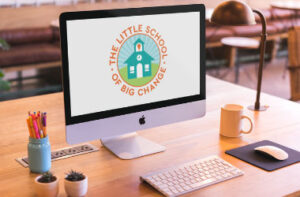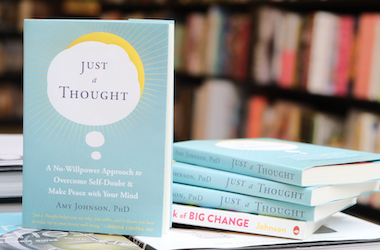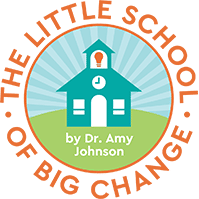I bet you’ve tried change the hard way. Pretty much everyone has. 
The hard way is where you fall into one or more of these traps:
- You consider your habit or unwanted behavior a huge problem; it looks like a personality flaw, a weakness, or maybe even a disease. It hasn’t occurred to you that your unwanted experience might be a normal, healthy response that is misunderstood. You see it only as a problem that you want gone.
- You gather tons of advice from others, all focused on what to do. You formulate a behavioral plan for how to eat, think, feel, or act. All of your change attempts are about which actions to take and what to do.
- Your desire for quick results (reinforced by everyone with an instant fix to sell you) has you impatient and full of unrealistic expectation. It has you focused on seeing results now, which feeds into your proclivity to focus on quick behavioral fixes and strategies rather than look deeper at what the real issue.
The real problem with the hard way isn’t that it’s hard. You can do hard things and you’re more than willing to do hard things if they work.
The problem is that the hard way rarely leads to lasting change. It’s not sustainable. It’s superficial and quick and it leaves you incredibly frustrated and hopeless in the end.
When we focus only on the part of human life that we see (our thoughts, feelings and behaviors) we’re dealing with only the tip of the iceberg. Just like with a real iceberg, there is a tiny portion of human life that we see and a huge portion that we don’t.
Focused on the tip of the iceberg, you naturally go to work chipping away at it. Who can blame you? What that looks like in terms of behavior change is that you employ all sorts of patches, strategies, techniques and plans to change what is visible.
If you want to get healthier, you follow someone else’s diet and make a plan to go to the gym every day. If you want to stop wasting so much time on social media, you find some app that tracks your usage and tells you when it’s time to close your browser. If you want closer, more intimate relationships, you plan date nights or rearrange your schedule to put you next to the people you care about more.
Each of those examples is an example of outside-in change; change made by altering outside behaviors. That’s the equivalent of taking a chisel to the tip of your iceberg and chipping away, all the while oblivious to the 90% of the iceberg that is submerged underwater.
That 90% of the iceberg that’s underwater is supporting the iceberg (habit). Shift that foundation and the whole thing crumbles.
This is why January 17th has been dubbed International Ditch Your New Year’s Resolutions Day. With ‘hard way’, behavior-focused change, you barely make it two and a half weeks. The chisel gets heavy. You get tired and discouraged.
Change is possible. Deep, sustainable change happens all the time when we look toward the base of the iceberg—the less-visible foundation that is keeping our habits in place.
Tackling change by focusing solely on doing the right things is rooted in a fundamental misunderstanding about ourselves, our habits and behaviors, and how our human experience works. Clearing up those misunderstandings flips the iceberg on its head and gives you the change you’re looking for.
When you look under the water, toward what is less visible, you see that you are actually habit-free already. Your habit is made of fleeting, conditioned thought that comes and goes all the time, and that you can learn to pay far less attention to.
Accurately understanding the way humans are designed to thrive, and seeing that the thoughts and feelings that make up your habit aren’t nearly the stable, strong threat they appear to be, begins to shift the foundation.
It seems silly to chisel away at the tip of the iceberg when you can simply raise the water temperature and melt the whole iceberg. Chipping away at your habit with behavioral plans is no different. When you see the foundation in a new way, your understanding “raises” and change happens from the inside-out.





